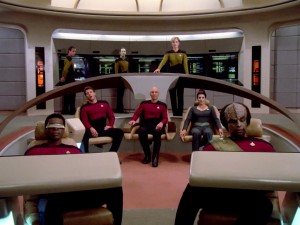Yesterday, I wrote about my first foray into the realm of mythology research. I laid out the broad strokes of what I was after and how I approached it. Today, I want to take the time to more specifically discuss the methodology I employed.
I mentioned a couple of the primary texts my novel focused on, and the Big Three religious mythologies I was interested in: Christianity, Judaism, and Paganism. Through reading my various source texts, I discovered elements that all of my target mythologies had in common-points of intersection. First, they all subscribe to the existence of certain very specific supernatural beings that have interacted and continue to interact with humanity to this day. Second, they more or less universally accept a single common historical event: the global flood. From these intersections, the plot of my novel arose.
But these are broad strokes. Starting points. I’m not writing this to promote my own work so much as to tackle the subject of solid research methodology.
When conducting research, I can’t emphasize enough the importance of reading books, both original texts and commentary texts, including commentaries from as many different perspectives as possible. The tension between scholars who disagree is rife with creative possibilities! The temptation, however, is to surf through a handful of Wikipedia pages, watch a Discovery Channel special, and call it done. This usually won’t be enough to generate convincing real-world depth in your writing, though, not if you don’t have a wealth of personal, firsthand experience in the subject you’re dabbling in.
The internet is your friend. We all know that. It’s like saying that the sky is blue or pizza tastes good. More specifically, the internet is that friend you can never fully trust because, although you like them and spend as much time with them as you can, he or she is a compulsive liar-albeit a well-meaning one much of the time. So it’s a good idea to vet and twice confirm information gathered online. Now, I’m not going to say I haven’t embraced a half-baked conspiracy theory or two and thrown them into the plot stew; I have, and such additions often provide that je ne said quoi spice that keeps life interesting. But it’s got to be the seasoning, not the base.
Finally, get out of your head every once in a blue moon and remember that it’s not all about screen research. You have to spend time with people. Talk to them. Befriend them. Learn from them. In my case, I scheduled face time with a number of people I know who run in pagan circles. Frankly, some of my electrifying material came from them. It’s important to stretch ourselves, to dive into areas we know are dark and murky. Real, live, breathing people make for fantastic sources, and often other people’s beliefs and perspectives bring a lot of colour to the party.
In the end, it’s important to remember that the best mythologies, on a narrative level, function best in the background. Compelling human drama is where the real story is. Even when the myth jumpstarts the plot, the characters should hopefully still do the heavy lifting. And yet without myths and legends, where would we be as modern-day storytellers? Nowhere, I say. Absolutely nowhere.



